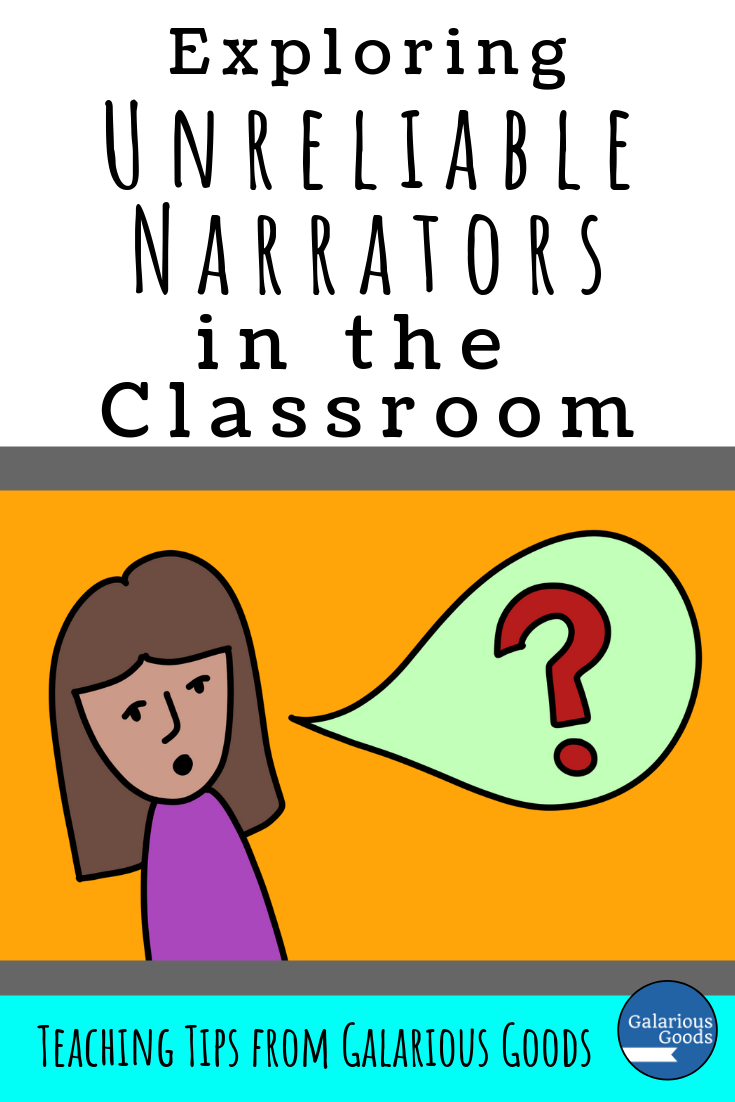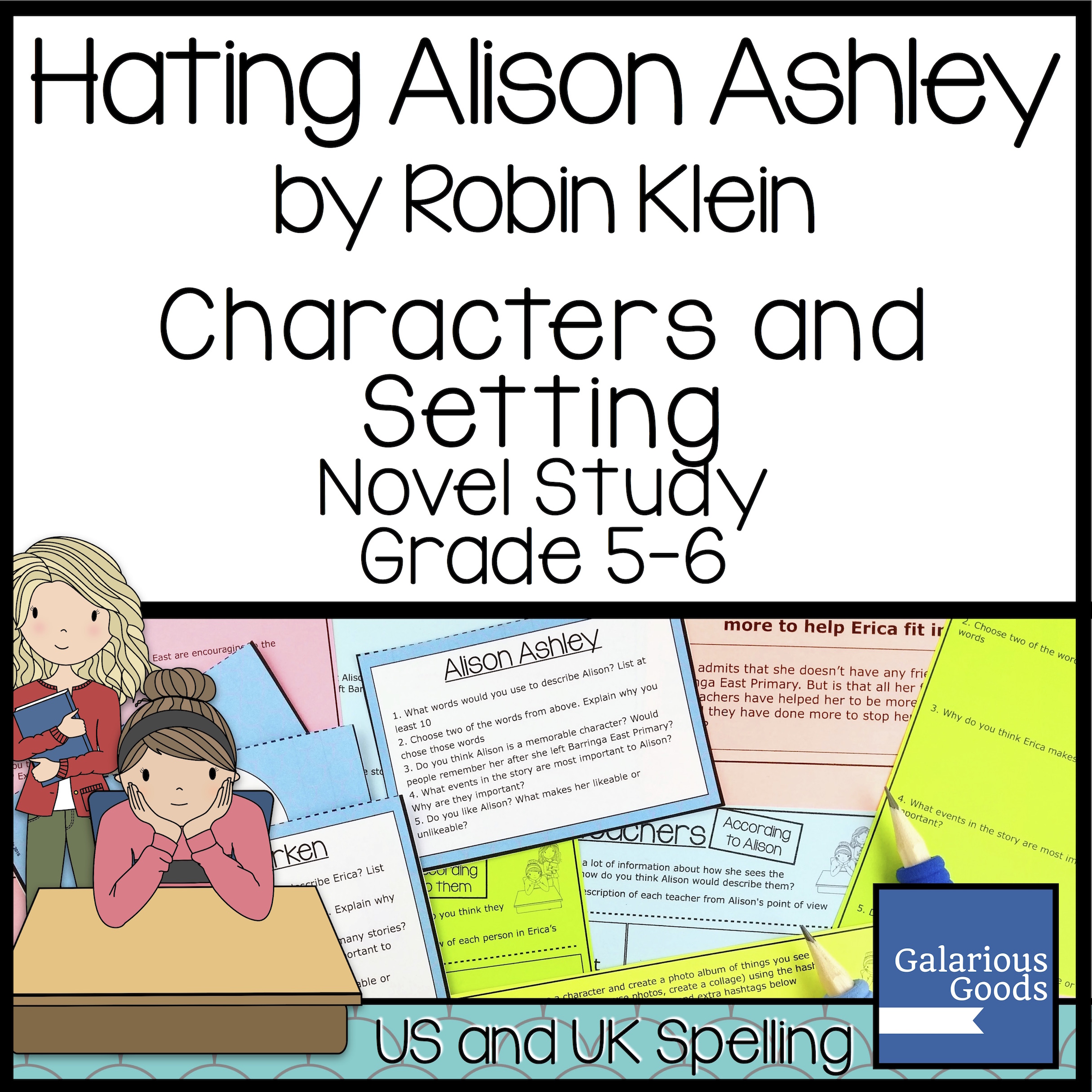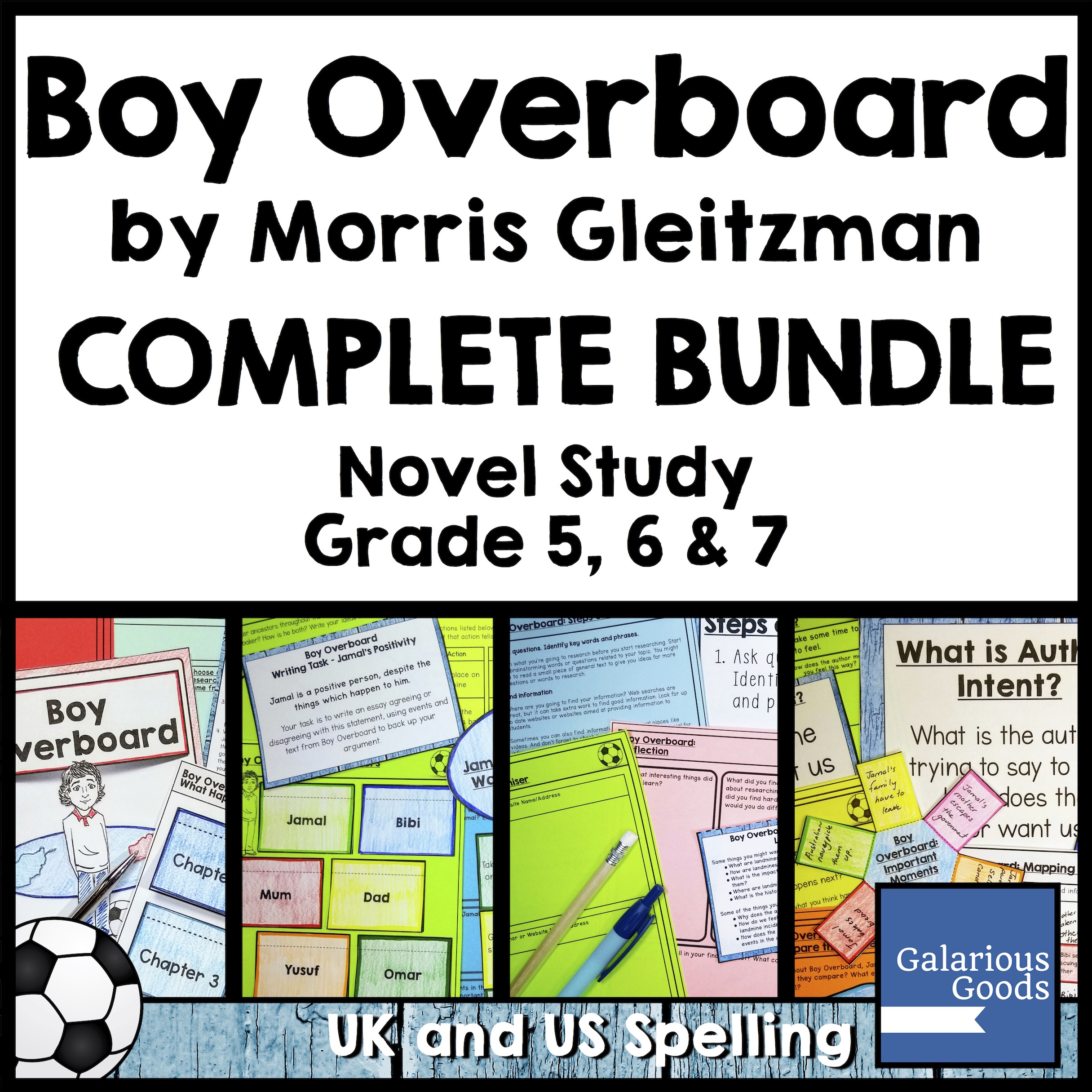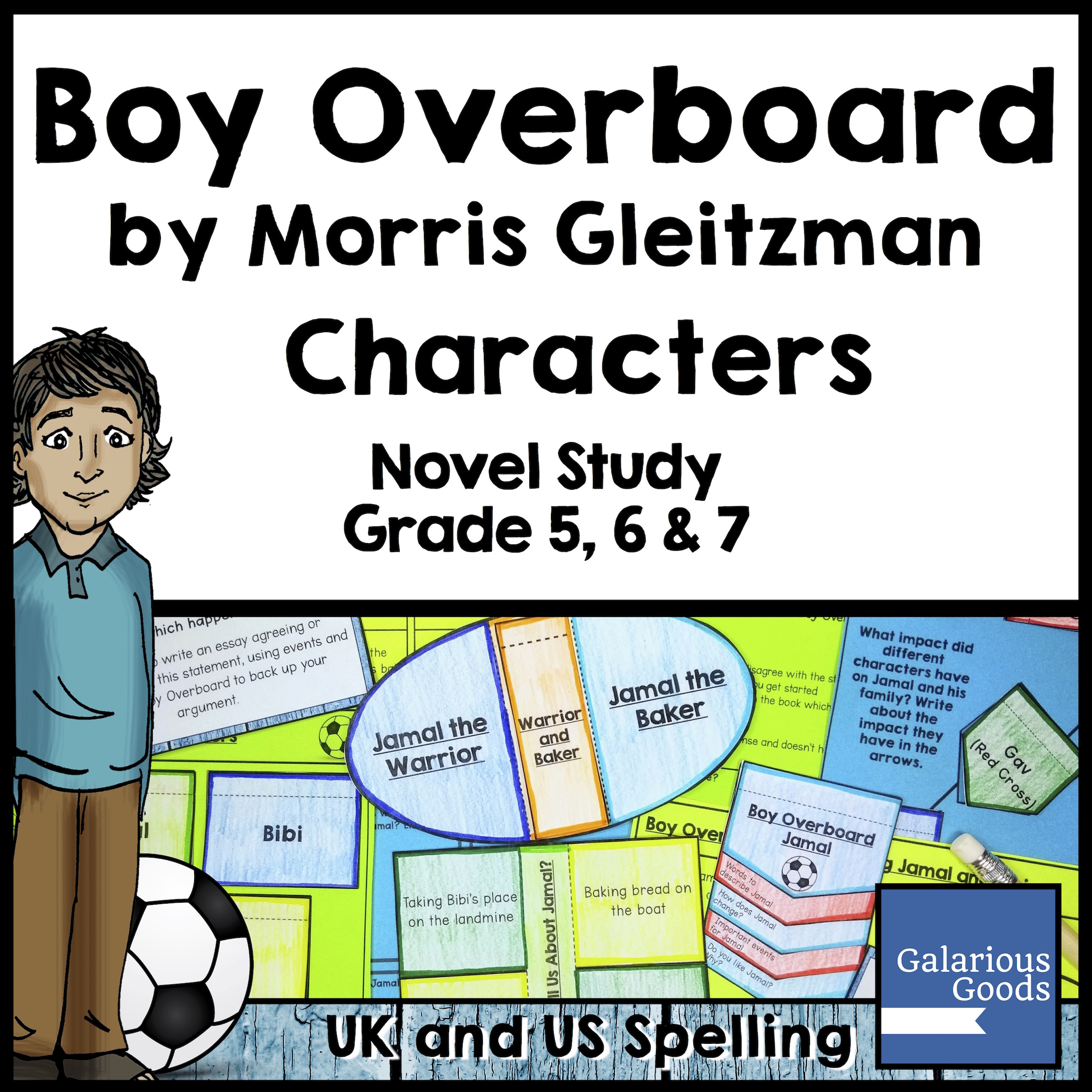Exploring Unreliable Narrators in the Classroom
/Books which tell us the story from the perspective of one of the main characters can often have unreliable narrators - narrators you can’t quite trust 100%. These unreliable narrators can be fascinating to explore in the classroom - allowing us to take a closer look at the intentions of the author and what kind of person these characters are.
The Unaware Narrator
Jamal in Boy Overboard (by Morris Gleitzman) is sure that he and his sister have arrived at a soccer match. Only to discover that he is terribly wrong.
Jamal is a character who often only has part of the story. He is forced to fill in the gaps with the knowledge he does have, but many times his conclusions aren’t right and he has to reassess and draw new conclusions. As readers there are times when we are aware that he doesn’t have it quite right (or we soon find out that is the case) and we have to assess whether we will believe his next conclusion, or treat it with a level of scepticism.
Morris Gleitzman writes a LOT of characters like this. Which makes sense because childhood often feels like this - like you have some of the puzzle pieces, but someone’s hidden the picture which helps you put them together.
Another great example of a character like this is Mothball the Wombat from Jackie French and Bruce Whatley’s Diary of a Wombat story. In this case, the illustrations soon let us know that the scratching post is a ladder and the furry enemy is really a doormat, so we find ourselves carrying two narratives through the story - the narrative in Mothball’s head and the narrative we can tell from the illustrations.
Exploring Unaware Narrators in the Classroom
These can be great fun to explore in the classroom because our own knowledge, experiences and schema may be able to help us fill in the gaps. Comparing what our narrators think is happening and what is really happening allows us to understand where our characters come from - whether they’re boys or wombats.
It also allows us to explore the intentions of the author. An author study on Morris Gleitzman books would be particularly interesting, looking at what information he gives his narrators before the events of the book, what conclusions they draw from that information when they’re in unfamiliar circumstances and what they learn going forward.
When we explore a character like Mothball, we can also look at the choices the author has made - the wombat understands certain terms like sleep, scratch and - of course - carrots, but hasn’t come up across concepts like garden beds, door mats or washing lines. Why has the author made those choices for our wombat narrator? How would the story be different if there were different choices?
The Deliberately Unreliable Narrator
Erica Yurken is the best thing since sliced bread. Or at least she is in her own mind. And in the stories she tells others.
Robin Klein’s classic novel Hating Alison Ashley is told from the perspective of Erica Yurken who constantly creates stories about herself and others to amuse herself, get herself out of trouble or to impress other people - including Alison Ashley.
If we just listened to Erica, we would probably be inclined to hate Alison Ashley ourselves. But there are things which make us question Erica’s trustworthiness - times when she gets caught out in her stories, times when she contradicts herself and times when we glimpse her through the eyes of other characters. The author knows that Erica is not reliable and wants the reader to know this too.
We find another unreliable narrator in the Do Not Open This Book series from Andy Lee. Our narrator desperately wants us to stop turning the pages (because dreadful things happen to him when we do), so he’ll try anything to stop us - even turning the book around so we’ll turn the pages from back to front. The illustrations, eventual confessions and meta-knowledge of how books work allows us to know that our narrator is not the most trustworthy of characters - even if he’s only being unreliable to save his own skin.
A. Wolf is also just trying to save his skin in The True Story of the Three Little Pigs. He’s found himself in jail and he wants us to know that it’s not his fault at all - it’s all because he needed to borrow some sugar.
In this case, it’s our own background knowledge - our understanding of fairy tales - which makes us question his honesty. After all - we’ve never heard this story before. But we keep reading to see how he’s going to justify his terrible crimes.
Exploring Deliberately Unreliable Narrators in the Classroom
The biggest questions we can ask in our classrooms when it comes to deliberately unreliable narrators is why do they behave like this? Why are they trying to mislead us - the readers - and what will they get if they manage this?
We can also challenge students to write first person narration like this. To consider what motivates a character and then have them tell a story where they work to convince the reader of something which may not be quite true. This works particularly well when students begin with well known stories like fairy tales and myths and try to tell the story from the perspective of the ‘bad guy’.
What unreliable narrators have you come across in your reading? Have you used a book with an unreliable narrator in your classroom? Leave a comment below.

















